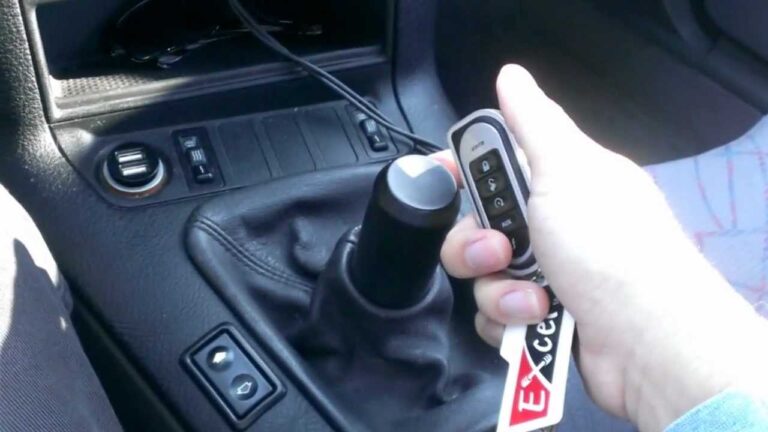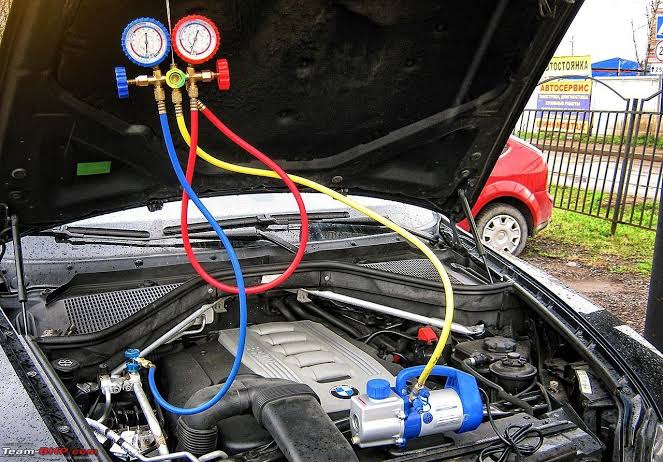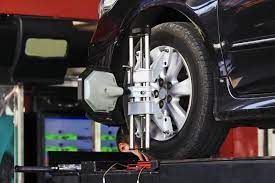Can A Bad PCV Valve Cause A Misfire?

The PCV (Positive Crankcase Ventilation) valve plays an essential role in your vehicle’s engine by allowing gases to be vented from the crankcase and reintroduced into the intake manifold for combustion. This process helps reduce emissions and ensures the engine runs smoothly. However, when the PCV valve malfunctions, it can cause a variety of engine issues, including a misfire. But can a bad PCV valve cause a misfire? Let’s explore how this valve works, how a malfunctioning one can impact your engine, and the connection between a bad PCV valve and engine misfires.
What Is a PCV Valve?
The PCV valve is a small but important component in the engine’s ventilation system. It’s located in the crankcase and is designed to regulate the release of gases that accumulate during combustion. These gases are then redirected back into the intake manifold to be burned off again during the combustion process.
- Primary Function: The PCV valve helps to control harmful blow-by gases, prevent pressure buildup in the crankcase, and reduce engine oil contamination.
- Operation: When the engine is running, the PCV valve opens and closes depending on engine speed and pressure, allowing the gases to flow back into the intake manifold.
Key Components Affected by the PCV Valve:
- Crankcase: Where combustion gases accumulate.
- Intake Manifold: Where the gases are introduced for reburning.
How Does a Bad PCV Valve Affect Engine Performance?
A malfunctioning or bad PCV valve can cause a range of issues that affect your engine’s performance, including a misfire. When the PCV valve isn’t functioning properly, it disrupts the ventilation process, which can lead to various symptoms.
1. Excessive Pressure in the Crankcase
A clogged or faulty PCV valve can cause pressure to build up inside the crankcase. This increased pressure can cause seals and gaskets to fail, leading to oil leaks or even contamination of the engine’s oil supply. If this pressure is not relieved, it can interfere with engine performance and may lead to misfires.
- Oil Leaks: Pressure buildup can force oil to leak out of seals and gaskets, leading to engine oil contamination or reduced lubrication.
- Engine Oil Contamination: The oil gets contaminated by blow-by gases, which can lead to improper combustion and engine performance issues, including misfires.
2. Incorrect Air-Fuel Mixture
A bad PCV valve can cause an incorrect air-fuel mixture, which is a critical factor in proper engine operation. If the PCV valve allows too much air or fuel into the intake manifold, it can throw off the mixture, leading to misfires.
- Too Lean or Too Rich: If the PCV valve is malfunctioning, it might allow unmetered air to enter the intake, which can lean out the air-fuel mixture. A lean mixture can cause misfires because there isn’t enough fuel for combustion. Conversely, a too-rich mixture can lead to poor combustion and engine hesitation.
3. Increased Engine Blow-By
A faulty PCV valve can lead to increased blow-by gases. Blow-by gases are unburned fuel and air that escape past the piston rings into the crankcase. If these gases aren’t properly vented, it can cause rough engine operation, reduced power, and potentially misfires.
- Poor Combustion: The buildup of these gases can interfere with the smooth operation of the engine’s combustion process, leading to misfires or engine hesitation.
- Worn Piston Rings: Prolonged buildup of blow-by gases can contribute to further wear on the piston rings, exacerbating engine issues.
4. Vacuum Leaks
A faulty PCV valve can cause vacuum leaks in the engine’s intake system. This allows extra air to enter the engine that isn’t being measured by the mass airflow (MAF) sensor or throttle body, which can lead to unstable air-fuel ratios.
- Erratic Idling: A vacuum leak caused by a bad PCV valve can lead to unstable idling and engine stalling. This is because the engine is receiving too much air, which throws off the air-fuel mixture, potentially causing a misfire.
- Engine Hesitation: Vacuum leaks can also lead to engine hesitation and poor acceleration, which are signs of improper combustion.
5. Engine Performance Issues
If the PCV valve is malfunctioning, it can lead to poor engine performance, including rough idling, poor acceleration, and misfires. The engine may feel sluggish or unresponsive because of the imbalance in air-fuel mixtures or internal engine pressure.
- Rough Idle: A bad PCV valve can cause a rough idle as the engine struggles to maintain proper fuel combustion.
- Engine Stalling: If the valve is stuck open or closed, it can cause the engine to stall, further contributing to performance issues.
How to Identify a Bad PCV Valve
If you suspect that a bad PCV valve is causing misfires in your vehicle, there are several signs and symptoms you can look out for:
1. Check Engine Light (CEL)
A faulty PCV valve can trigger the check engine light (CEL) due to the changes in air-fuel ratios or vacuum pressure. You may also see specific diagnostic trouble codes (DTCs) related to the PCV system or misfires, such as P0171 (System Too Lean) or P0300 (Random Misfire).
2. Rough Idle or Stalling
If the PCV valve is not working properly, you might experience rough idling or engine stalling. The engine may struggle to maintain a smooth idle because of irregular air-fuel mixtures.
3. Oil Leaks or Burning Oil
A bad PCV valve can cause oil to leak or burn due to increased pressure in the crankcase. If you notice oil leaks or the smell of burning oil, the PCV valve may be the culprit.
4. Poor Acceleration and Engine Hesitation
If your car hesitates during acceleration, it could be due to an improper air-fuel mixture caused by a malfunctioning PCV valve. This can lead to poor engine performance and potentially a misfire.
How to Fix a Bad PCV Valve
If you suspect that a bad PCV valve is causing misfires or other engine issues, it’s important to address the problem promptly. Here’s how to fix it:
1. Inspect and Replace the PCV Valve
The first step is to inspect the PCV valve for any signs of damage, clogging, or wear. Replacing the PCV valve is often a simple and inexpensive fix. Ensure the new valve is installed correctly and that all components are properly sealed.
2. Check for Vacuum Leaks
After replacing the PCV valve, check for any vacuum leaks around the intake system. Leaks can exacerbate the issues caused by a faulty PCV valve, so it’s important to ensure everything is sealed properly.
3. Clear the Codes
Once the PCV valve is replaced, use an OBD-II scanner to clear any diagnostic trouble codes (DTCs) and reset the check engine light.
4. Inspect the Entire Crankcase Ventilation System
If the issue persists, it may be worth inspecting the entire crankcase ventilation system, including hoses and seals, for any blockages or damage.
Conclusion
In conclusion, a bad PCV valve can indeed cause a misfire in your vehicle. By disrupting the air-fuel mixture, causing excessive blow-by gases, or creating vacuum leaks, a malfunctioning PCV valve can lead to engine performance issues such as rough idling, hesitation, poor acceleration, and misfires. If you’re experiencing any of these symptoms, it’s important to inspect and replace the PCV valve to restore proper engine function. Regular maintenance of the PCV system can prevent these issues and ensure your engine runs smoothly for years to come.





